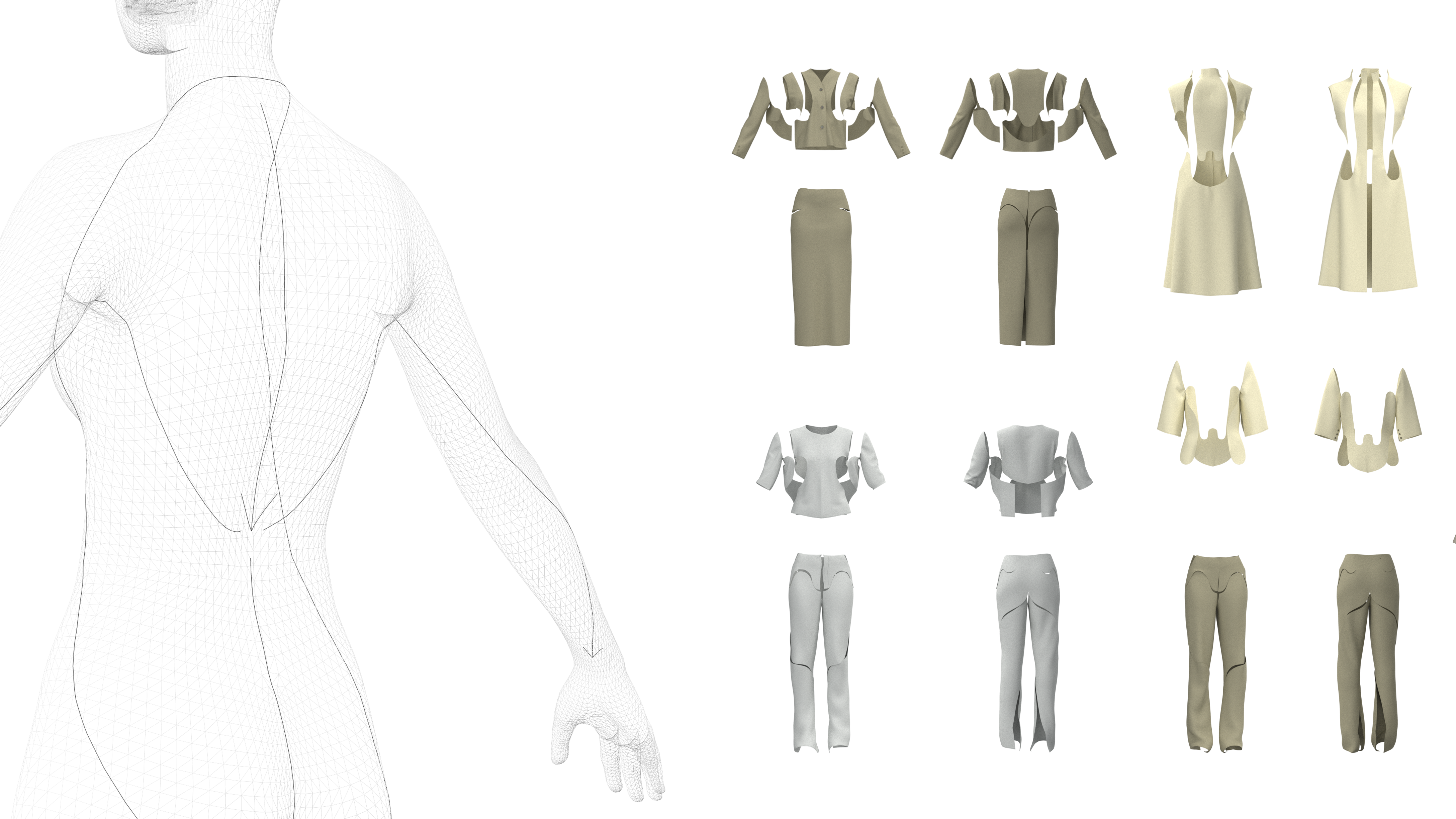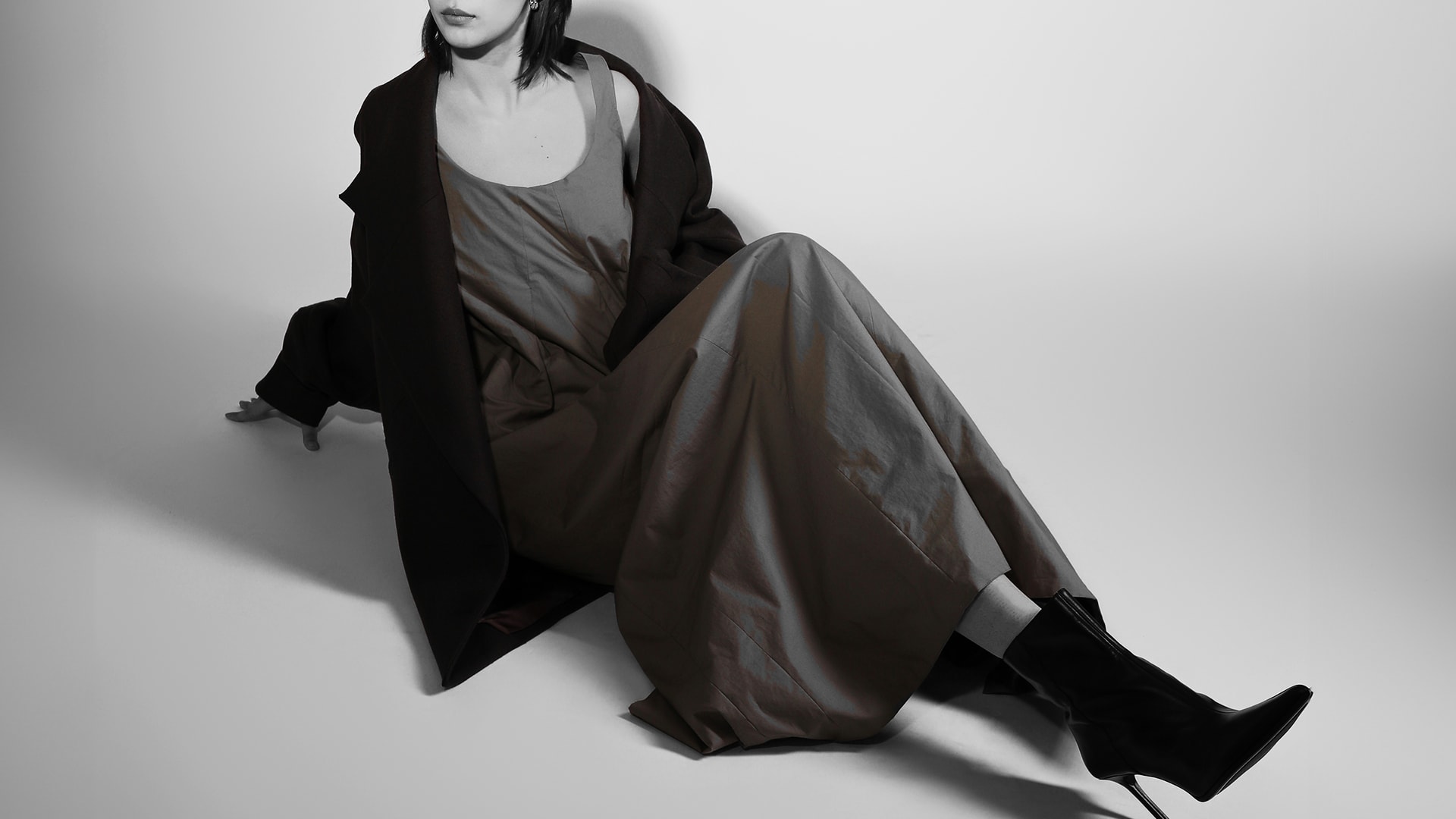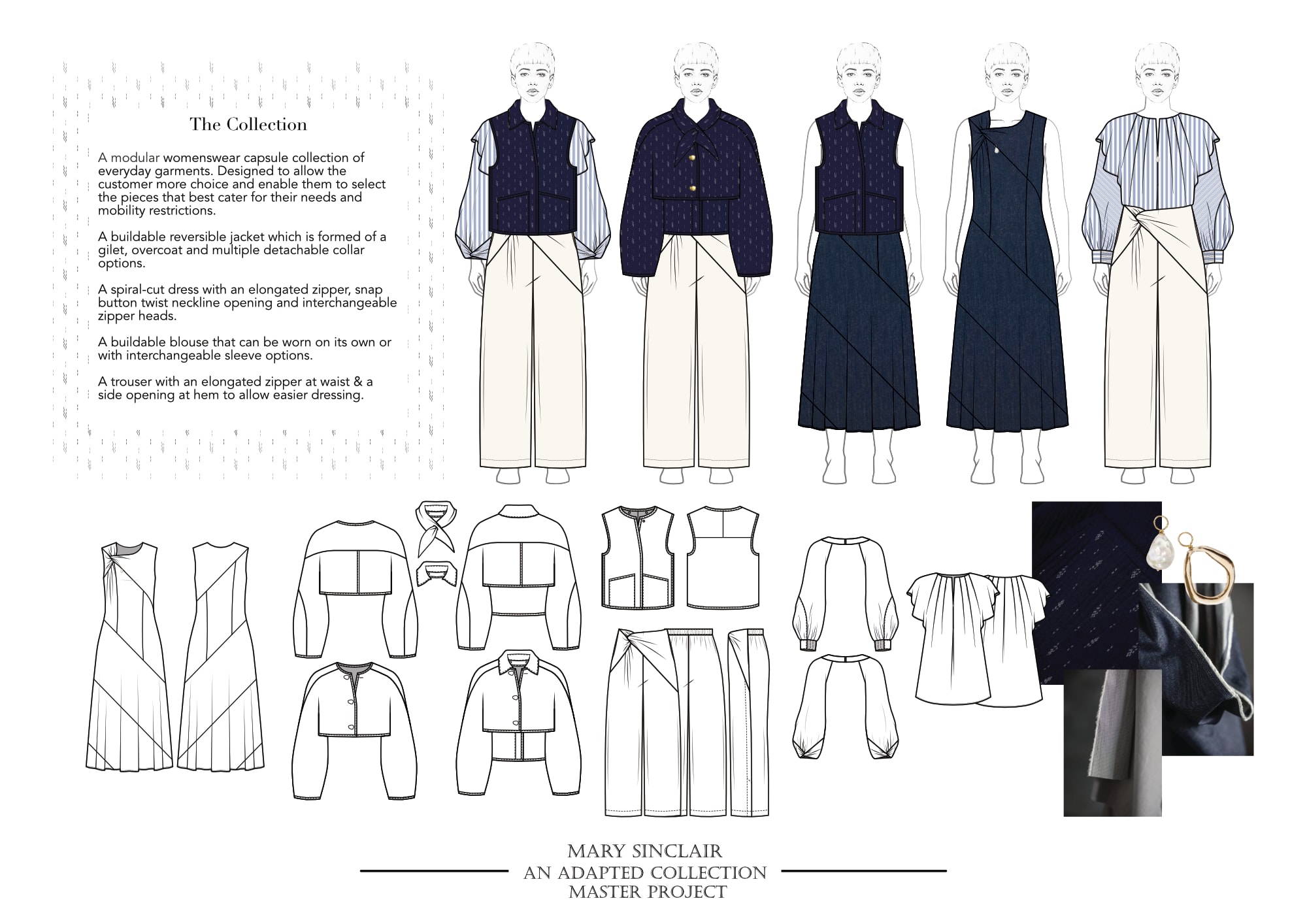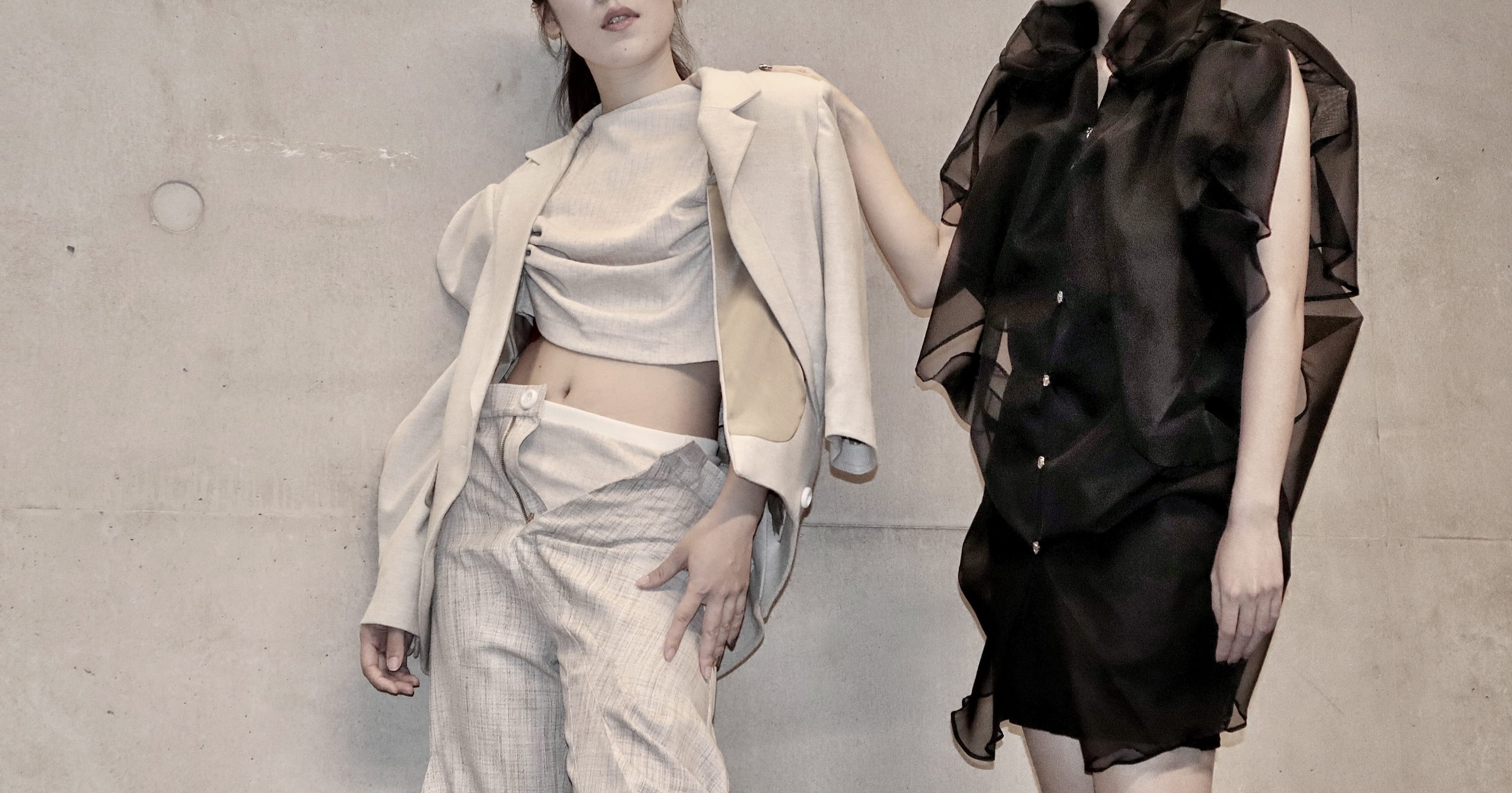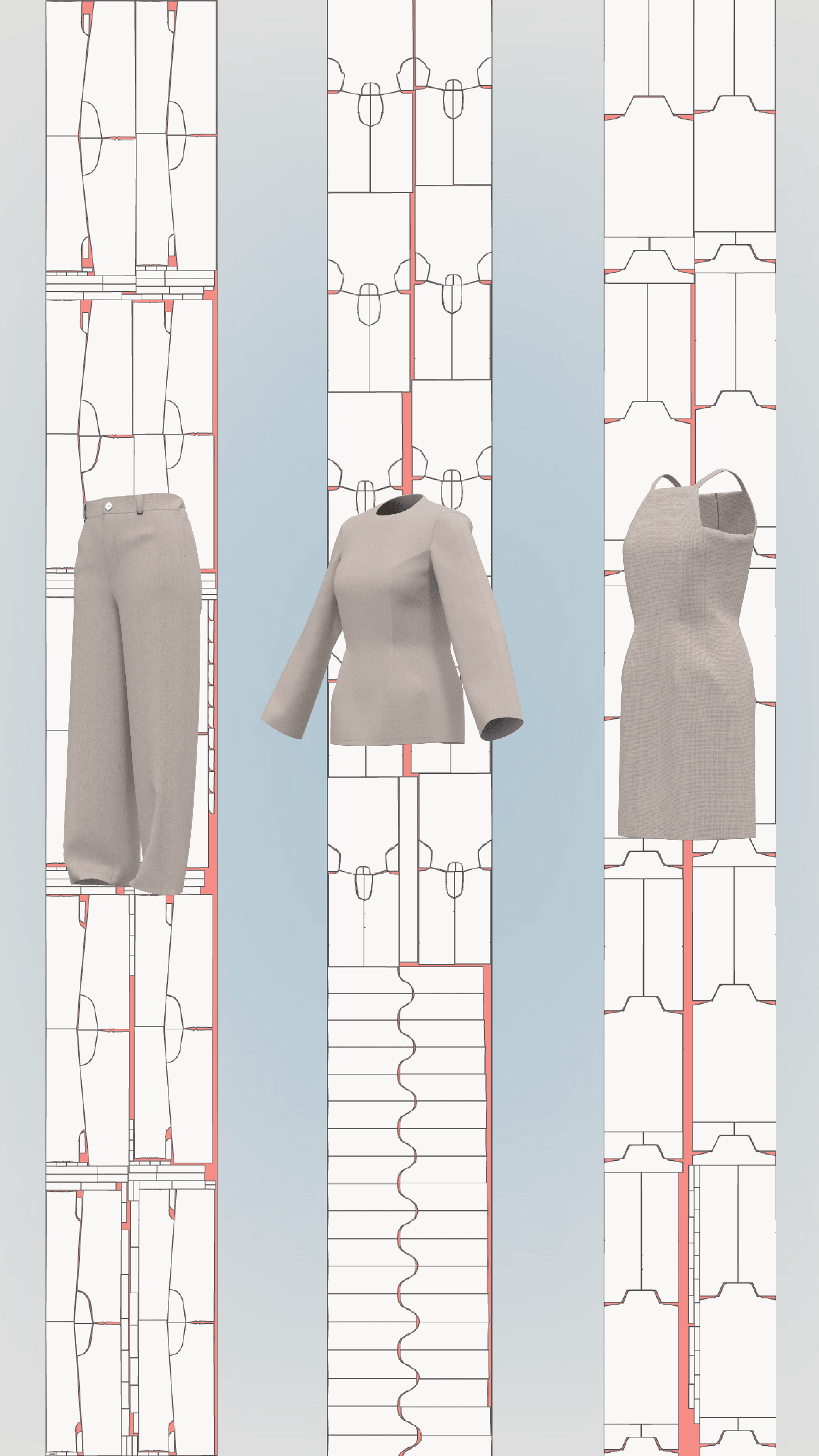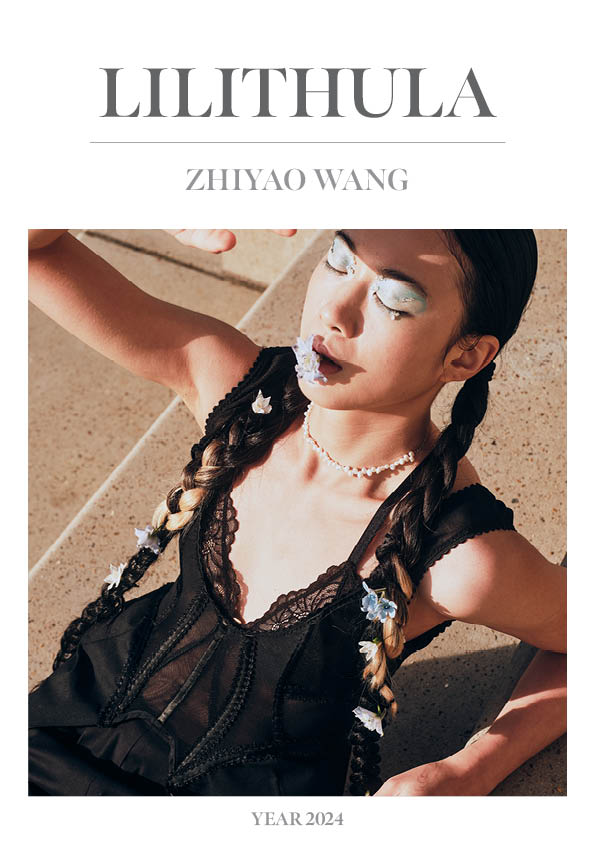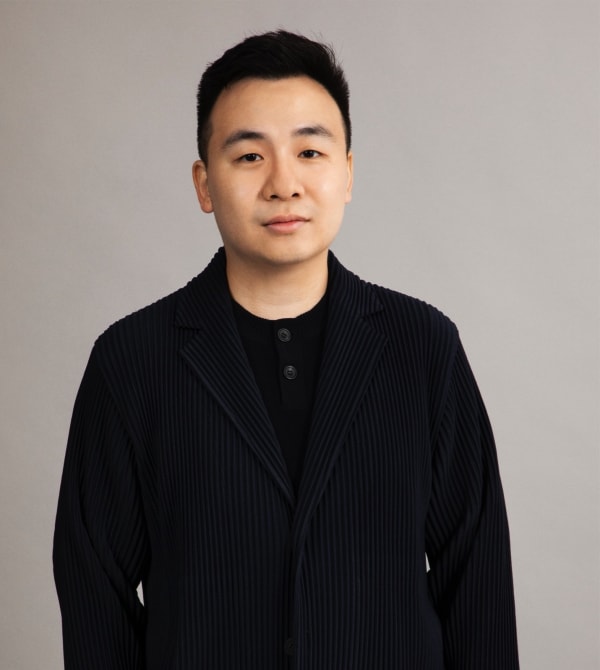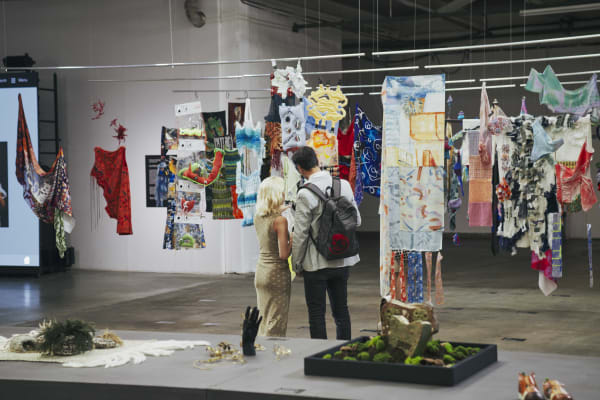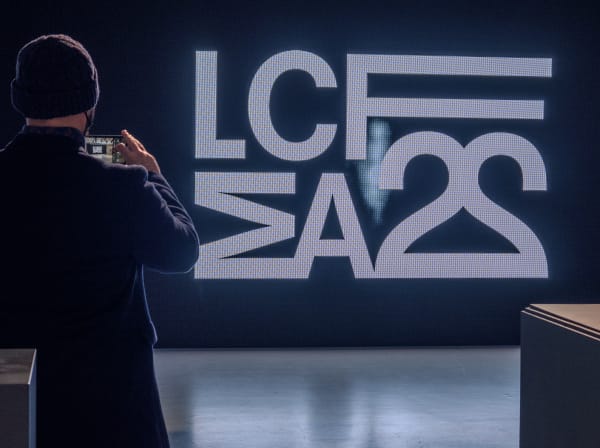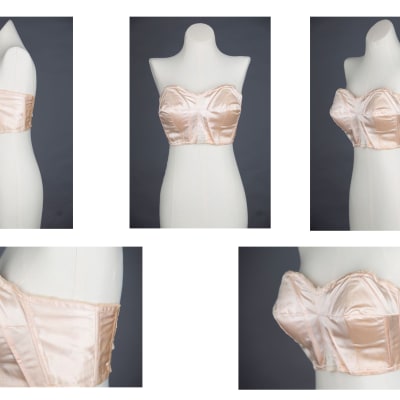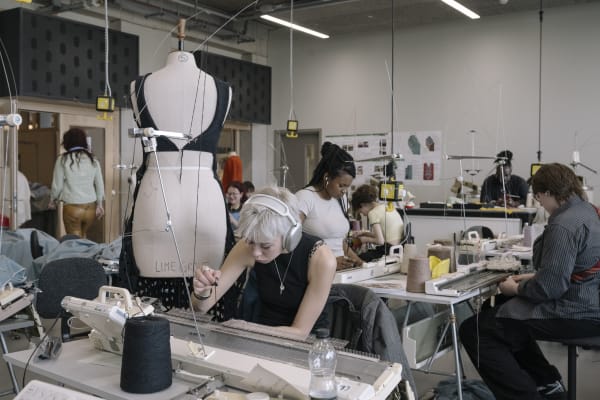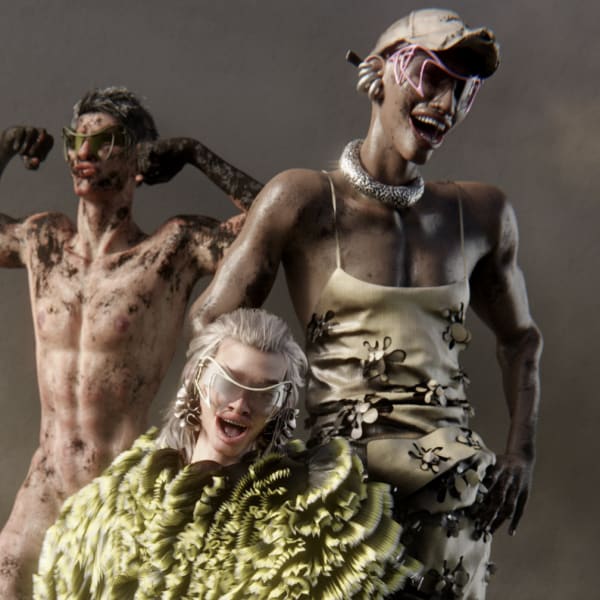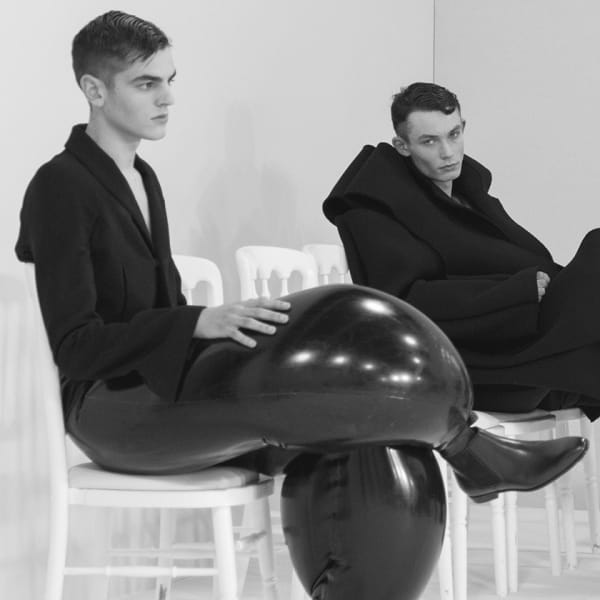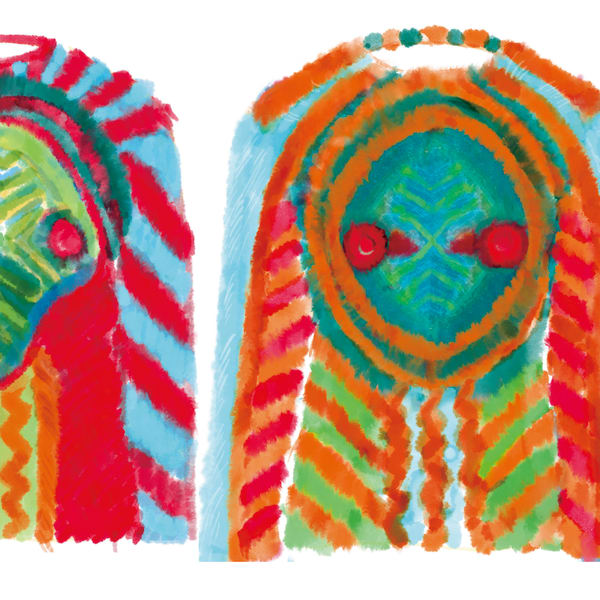Course units
The course is divided into three 15 week Blocks, which are 60 credits each.
Block 1 consists of 1 school specific 20 credit unit and 1 course specific 40 credit unit:
Collaborative Challenge (20 credits)
This unit is your opportunity to innovate and explore developmental processes and engage with collaborative working practices. You’ll develop your professional negotiation, teamwork and networking skills that are essential in the cultural, entrepreneurial and creative industries. The emphasis of this unit is on cross-disciplinary student-led collaboration. You can engage with industry and college-based briefs.
Pattern and Garment Technology (40 credits)
This unit focuses on building your technical skills and creativity, helping you expand your practical abilities. Through lectures and workshops, you’ll learn about pattern cutting techniques and manufacturing processes while being introduced to the resources and facilities available to support your work. The project will involve in-depth research, experimentation, and analysis, resulting in a portfolio of work showcasing your creative and technical skills in pattern cutting and garment construction.
Block 2 consists of 1 cross-college 20 credit unit and 1 course specific 40 credit unit:
Research Proposal (20 credits)
Developing effective research approaches is key to success in your Master’s project and career. This unit explores theoretical perspectives on your practice and discipline, helping define your research philosophy. You'll build core capabilities and create a theoretically grounded proposal using primary and secondary methods. You'll develop a framework connecting theory and practice, formulate research questions, and ensure your study is ethical, achievable, and critical, with potential for interdisciplinary exploration.
Technical Analysis and Development (40 credits)
This unit focuses on developing and evaluating your studio practice through in-depth research and experimentation. You’ll explore diverse methods while considering the impact of the climate emergency and global socio-political contexts. Following industrial Critical Path stages, you'll create prototypes and test technical skills. Emphasis is placed on sustainable, equitable practices, challenging conventional production, and using both traditional and digital techniques to propose innovative, responsible solutions for the fashion industry.
Block 3 is the 60 credit Masters project unit:
Masters Project (60 credits)
The Masters Project is the final, self-directed stage of your course, where you synthesise the knowledge and skills gained throughout your studies. Guided by your supervisor, you'll define your project's direction and demonstrate your ability to critically analyse your practice using strong research and theoretical frameworks. The completed project will showcase your academic and professional capabilities, serving as a high-quality foundation for your future career and development.
Each unit will be completed over a period of 15 weeks.
Students start in September and normally have taught sessions timetabled over three days per week. The emphasis at postgraduate level is on independent study and in addition to these taught sessions you will be expected to utilise the library and open access facilities across the sites in order to engage in extensive self-directed research and experimentation. Details of the contact hours for your course are available via Myarts –http://mycontacthours.arts.local/.
